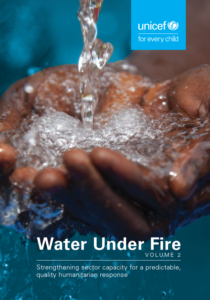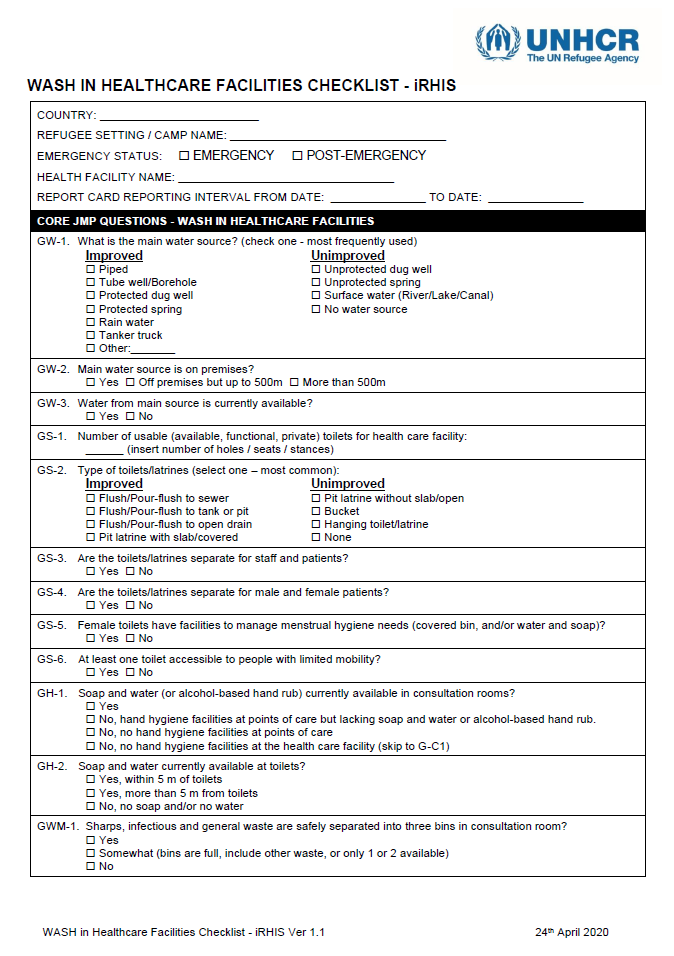 |
Water Under Fire (Vol 3)In many conflicts around the world, more children die from diseases linked to unsafe water than from direct violence. UNICEF is releasing Water Under Fire volume 3, a report that highlights the issues children face in accessing water in times of war. |
 |
Water Under Fire (Vol 2)This second volume of the Water Under Fire report series is dedicated to the WASH sector’s capacity to deliver a predictable, quality humanitarian WASH response, and provides a change agenda and road map towards strengthening this capacity.
|
 |
Faecal Sludge ManagementThis book compiles the state of knowledge of this rapidly evolving field, and presents an integrated approach that includes technology, management and planning. It addresses the planning and organization of the entire faecal sludge management service chain, from the collection and transport of sludge and treatment options, to the final enduse or disposal of treated sludge. In addition to providing fundamentals and an overview of technologies, the book goes into details of operational, institutional and financial aspects, and provides guidance on how to plan a city-level faecal sludge management project with the involvement of all the stakeholders.
|
 |
Compendium of Sanitation Technologies in EmergenciesThis document is a comprehensive and user-friendly capacity development tool for sanitation solutions in emergency settings. It provides detailed information on key decision criteria for tried and tested emergency sanitation technologies and information on cross-cutting issues such as inclusive design, soil analysis and institutional framework, relevant to come up with informed sanitation technology decisions in emergencies.
|
 |
COVID-19 Preparedness in UNHCR Schools (UNHCR, 2020)This document presents the results of a survey assessing the WASH readiness of schools in UNHCR-
|
 |
Compendium of Accessible WASH TechnologiesThis document contains examples of WASH technologies are that users can use to make their WASH facilities accessible to users with disabilities.
|
 |
WASH in Health Facilities Checklist (UNHCR, 2020)The UNHCR WASH Monitoring System includes monitoring of refugee health facilities following the Joint Monitoring Program (JMP) guidelines, model questions and standard indicators. All refugee health facilities should be surveyed at least once a year. Indicators are tracked on the Refugee WASH in Health Facilities Dashboard. |
 |
WASH in Schools Checklist (UNHCR, 2020)The UNHCR WASH Monitoring System includes monitoring of refugee schools following the Joint Monitoring Program (JMP) guidelines, model questions and standard indicators. All refugee schools should be surveyed at least once a year. Indicators are tracked on the Refugee WASH in Schools Dashboard.
|
 |
COVID-19 Training Webinar: Preparedness for Safe Refugee Schools (UNHCR, 2020)This training powerpoint presentation was used as part of a webinar for preparedness for safe operation of schools in refugee settings with relation to COVID-19. The webinar describes the rationale of data collection, how the data collection should be carried out, prioritised locations, timeline and specific practical training on mobile data collection using Open Data Kit (ODK) Collect.
|
